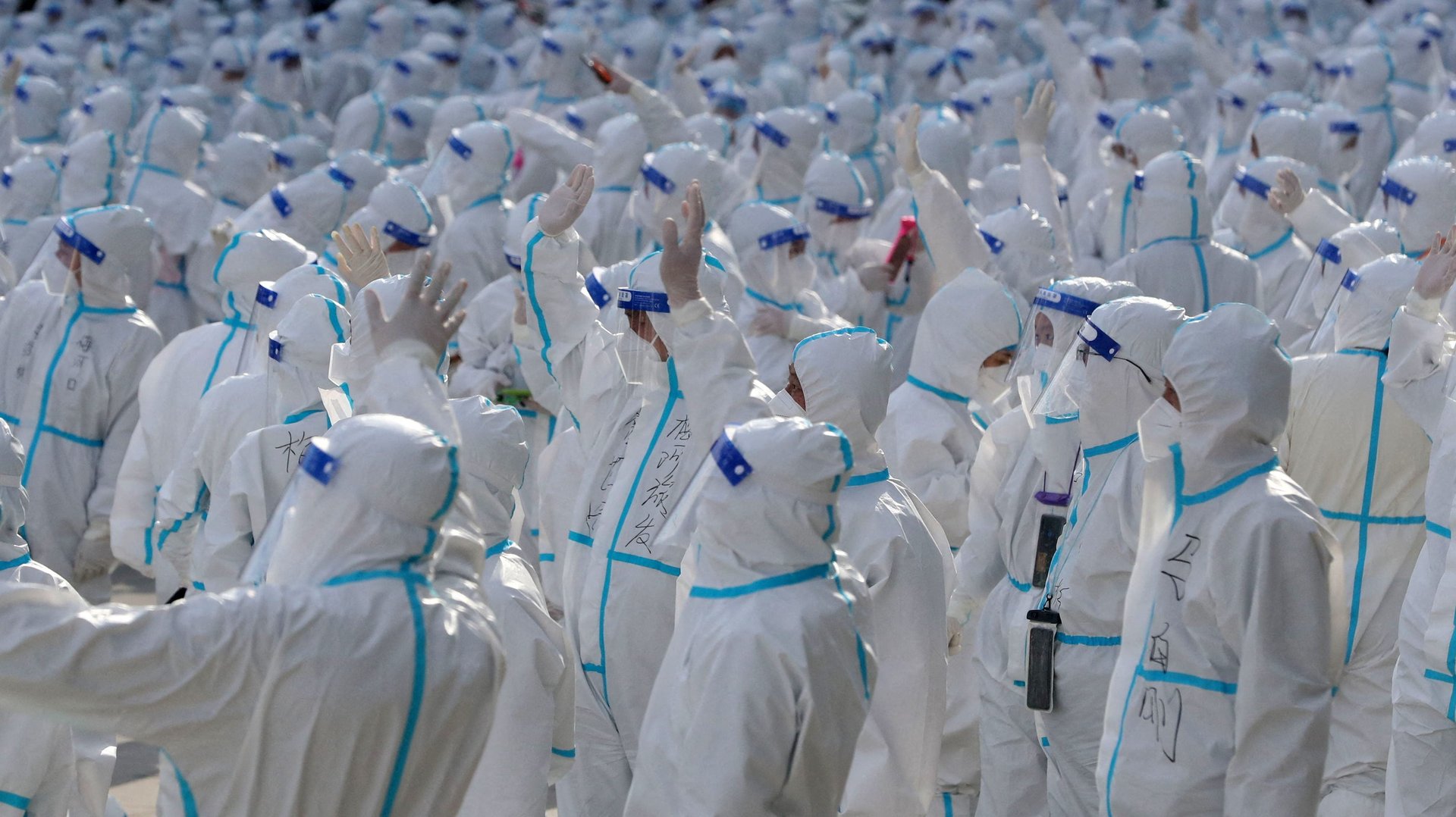A Chinese billionaire’s son is publicly criticizing Beijing’s covid policy
In China, few dare to openly criticize the government. But recently Wang Sicong, the son of real estate billionaire Wang Jianlin, has become an unlikely critic of Beijing’s covid policies.


In China, few dare to openly criticize the government. But recently Wang Sicong, the son of real estate billionaire Wang Jianlin, has become an unlikely critic of Beijing’s covid policies.
The younger Wang has long been at the center of China’s media and internet spheres, where his lavish lifestyle and often aggressive remarks about entertainment stars earned him more than 40 million followers on China’s Twitter-like Weibo. At the peak of his father’s career around 2015, when the property tycoon became Asia’s richest man, Wang Sicong was dubbed China’s “most eligible bachelor” and “the national husband” by followers. But after the Wanda property group came under scrutiny five years ago from Beijing, which had grown wary of Chinese companies’ overseas acquisition sprees, Wang Sicong also faded from public attention.
He’s returned to the spotlight, though, after sharing a video that questioned the efficacy of Lianhua Qingwen, a traditional Chinese medicine (TCM) endorsed by the government for treating mild covid cases. By yesterday (April 19), Wang Sicong was banned from posting on Weibo for “violating related laws and regulations.” (As of April 27, Wang’s Weibo account is no longer on the platform.)
China backs traditional medicine for mild covid
China has been promoting the herbal concoction since early in the pandemic, as an alternative to antiviral drugs from US or European pharmaceutical firms.
The video that Wang shared asked whether the drug had ever been recommended by the World Health Organization for covid treatment. In a separate, now-deleted post, Wang also reportedly urged the Chinese securities watchdog to investigate Shijiazhuang Yiling Pharmaceutical, the maker of the medicine, saying there are too few media outlets in the country that dare to seek evidence and speak the truth. Shares of China-listed Yiling plunged by 10% yesterday, and shed another 10% today.
Made of forsythia, honeysuckle, and other herbal ingredients, the treatment claims to “unleash…inhibited lung energy.” But it hasn’t been subjected to large randomized controlled trials to test its efficacy, cautioned the Singapore government in November, responding to social media claims about the treatment. The WHO also hasn’t recommended its use for covid treatment, according to Bloomberg, though at a virtual meeting with experts last month to evaluate the effects of TCM, the global body said that (pdf, page 15) “there is promising data to suggest that TCM is beneficial in reducing the risk of progression” from mild or moderate covid cases to severe ones.
Shijiazhuang Yiling didn’t immediately reply to a request for comment, but the firm told Chinese media (link in Chinese) it has never said the WHO recommended the use of its treatment, and that it will use legal means to defend itself against false information and smears, according to a company statement.
Boiling discontent about zero-covid
On Chinese social media, many have widely shared a screenshot (Chinese) of another post allegedly from Wang, in which says that he will refuse to do covid testing. “The covid testing every morning is a test of one’s servility and guts, instead of a test of whether they are [covid] negative or positive,” it read. Quartz couldn’t independently verify the authenticity of the post, while Wang couldn’t be reached for comment. Although covid testing is largely mandatory in China, the penalty for those who decline to be tested is unclear. On Wang’s Weibo account, one user left a comment saying they admired him for caring about “things concerning the grassroots” despite his privileged social status, a comment that has received nearly 17,000 upvotes.
Wang is tapping into a growing number of citizens’ boiling discontent toward Beijing’s zero-covid policy, which entails daily mass covid testing and snap lockdowns, and has resulted in chaos and food shortages in Shanghai, China’s most modern city. Leaked calls and statements from some officials suggest that even those tasked with enacting the policy have growing doubts, though they cannot say so publicly. Some users have also hijacked state media’s hashtags denouncing the US’s handling of covid as a way to express their anger towards Beijing.
Yet Beijing is sticking with the zero-covid strategy, believing it to be the best way to ensure stability ahead of a key Communist Party event in the fall at which China’s leader Xi Jinping is expected to take a third term. The growing outcry suggests it may well be having the opposite effect.
This story was updated on April 28.